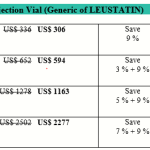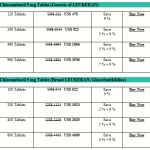The NDIS Practice Standards Explained in Simple Terms
Are you a carer, service provider, or participant under the NDIS? If so, it’s likely that at some point, you’ll be looking for more information about the National Disability Insurance Scheme’s practice standards. Understanding them is as simple as brushing your teeth in the morning. Once you know how to navigate and interpret each standard effectively, it will become another part of your daily routine. In this blog post, we’re breaking down all eight NDIS practice standards into plain English so they can easily be comprehended by everyone involved with the scheme.
What are the NDIS Practice Standards, and what do they cover
The NDIS Practice Standards are essential documents that set the minimum standards for service providers delivering care and support to people with disability. The standards cover a range of areas, including:
- Service Accessibility – This covers how service providers assess eligibility, provide information and referral services, conduct support planning, develop strategies to meet specific needs, and manage reasonable risk.
- Quality Assurance – This includes developing policies and procedures to ensure quality assurance practices that create safe and respectful environments for people with disability. It also involves monitoring performance outcomes as well as ethically managing complaints.
- Governance and Risk Management – This covers practices to manage staff competence, safety systems such as incident reporting processes, and other risk management systems.
- Service Delivery – This covers how services are provided to people with disability, including developing support plans, providing support, and ensuring effective communication between service providers and participants.
- Ethics and Rights – This outlines the ethical responsibilities of service providers towards people with disability, such as understanding the rights of individuals and respecting their dignity. It also involves making sure that people with disability can exercise choice and control about decisions about their lives. Finding the best NDIS plan managers can be a daunting task. That’s why it is important to research and ask questions before deciding.
It is important for organizations delivering care or services for people with disability to understand these Practice Standards to ensure they meet all required minimum standards when providing care and support.
How do the NDIS Practice Standards ensure quality care for consumers?
The NDIS Practice Standards set out the expected standards of conduct, performance, and practice for all registered providers. They are designed to ensure consumers receive quality care and services in a safe environment.
The NDIS Practice Standards cover areas such as:
– Staff qualifications and experience;
– Training and supervision plans;
– Complaints management processes;
– Infection control measures;
– Documentation practices;
– Risk management procedures;
– Privacy and security of information.
These requirements assure registered providers of NDIS services and their clients that they will be treated with respect, dignity, and fairness when accessing services. They help to ensure that consumers receive quality care delivered by qualified providers who are held accountable for their actions. The NDIS Practice Standards also help to protect consumers from exploitation, abuse, or neglect.
The NDIS Quality and Safeguards Commission monitors and enforces the NDIS Practice Standards. Providers can be fined or cancel their registration if they do not comply with these standards. This helps ensure quality care for all persons accessing services under the scheme.
The key elements of each NDIS Practice Standard
The National Disability Insurance Scheme (NDIS) Practice Standards are designed to provide the best possible outcomes for participants with a disability. The key elements of each NDIS Practice Standard described in points include:
- Communication – This standard outlines the obligations and expectations associated with communication between all parties involved in the NDIS, including participants, their families, providers, and other stakeholders. It covers how information is shared, consent obtained, and ethical standards upheld.
- Privacy & Confidentiality – This standard outlines the duties of care for collecting, using, storing, and disclosing personal information within the NDIS framework. It also includes requirements around data security and privacy protection measures that should be taken by providers working with the NDIS.
- Quality of Service – This standard outlines the expectations for service delivery, existing quality assurance processes, and complaints handling procedures. It also details how providers should measure and report on their performance as part of the NDIS framework.
- Risk Management – This standard guides how risks associated with providing services to participants in the NDIS are managed and supports greater transparency and accountability amongst providers within the scheme.
- Financial Viability & Sustainability – This standard outlines financial requirements for providers and participants to ensure that funding is appropriately allocated within the NDIS framework and that financial security is maintained across all parties involved in providing or receiving services under the scheme.
By following these Practice Standards, providers working with the NDIS can ensure that they remain compliant with the scheme and that the highest quality of care is provided to those accessing services. Providers must understand their obligations under each standard to support all participants effectively.
How to improve your practice to meet the NDIS Practice Standards
Once you thoroughly understand the NDIS Practice Standards, it’s time to put them into practice. Here are some key strategies you can use to ensure your practice meets the standards:
- Use evidence-based approaches – As a practitioner, staying up-to-date on best practices and research in your field is important. This will help ensure that clients receive quality services and support.
- Develop systems for measuring outcomes – Quality assurance measures should be in place to monitor positive outcomes and identify any areas of needed improvement. This will help ensure that services meet standards and clients’ needs.
- Seek feedback from clients and their families – Client satisfaction surveys, focus groups, and interviews are all excellent ways to solicit feedback. This will help you identify any improvement or development necessary to meet NDIS Practice Standards.
- Ensure your staff has the right qualifications – The NDIS Practice Standards require that practitioners have appropriate qualifications and experience to provide services under their scope of practice. It is important to ensure that your staff are qualified for their roles and regularly update their training as needed.









